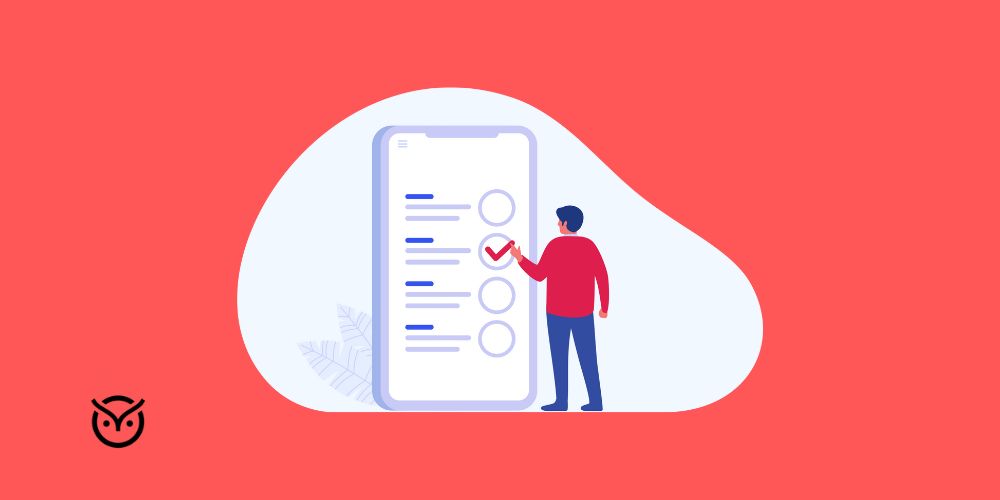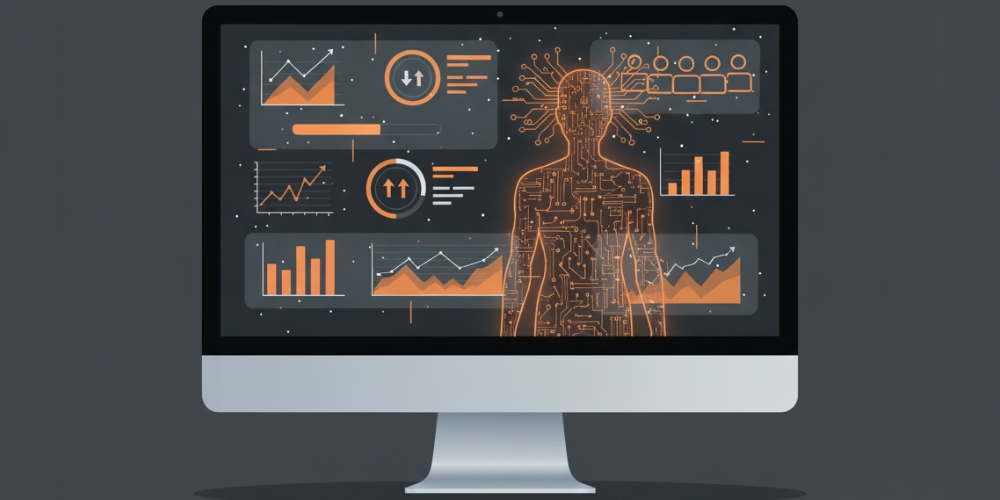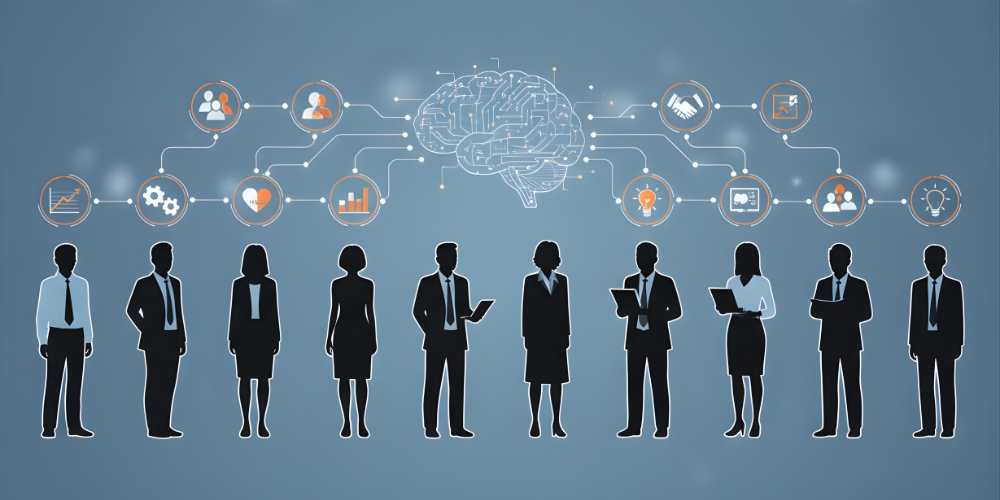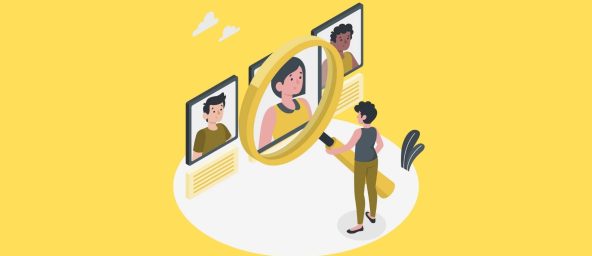
TL;DR
- AI-assisted cognitive testing finds quick thinkers who fit team culture.
- Culture fit means shared values not identical people.
- AI makes testing smarter with real-time analytics and adaptive design.
- Blending skills and culture data helps hire people who perform and stay.
- AI talent assessment tools and HR automation software and AI speed up fair hiring.
Hiring today isn’t about checking off skills on a list. A resume can look perfect, yet the person might clash with your team or struggle to adapt to how things get done. Traditional tests measure IQ, logic, or memory, but rarely show how someone thinks, reacts under pressure, or fits into your company culture. That’s where AI-assisted cognitive testing comes in, as it bridges the gap between skills and mindset.
With smarter algorithms and data-driven insights, recruiters can now see more than surface-level competence. They can evaluate how candidates think, make decisions and align with a team’s values. In the next few sections, we’ll explore how AI enhances cognitive testing, why culture fit is vital and how tools like AI staffing solutions can make recruitment more fair and accurate for everyone involved.
What Is AI-Assisted Cognitive Testing?

AI-assisted cognitive testing uses artificial intelligence to measure how people think and not just what they know. It evaluates abilities like reasoning, attention and learning agility through adaptive digital assessments that adjust in real time based on each person’s performance.
Unlike traditional multiple-choice tests, AI-powered systems track subtle behavioral signals such as speed, consistency and confidence in decision-making. This deeper analysis helps identify high-potential candidates, even from non-traditional backgrounds.
A modern system can test a candidate’s ability to switch between tasks, process new information quickly and handle uncertainty. These are the qualities that often reveal how well they’ll fit into a dynamic work environment.
Why Culture Fit Is Crucial in Hiring

Hiring someone who doesn’t align with your company’s way of working can be costly. You might find top performers on paper who leave within months because the environment feels off. Culture fit matters because it reflects whether a candidate’s values, communication style and pace match your team’s rhythm.
Recent reports reveal that 29 percent of companies now rely on AI tools to assess cultural fit during hiring. When handled the right way, these tools minimize bias by focusing on behavior and decision patterns instead of personal details. But cultural fit should never mean hiring people who think or act the same way.
The real aim is to create teams that share core values yet bring different ideas to the table. When culture and values align, people work better together, stay longer, and perform stronger. That’s why combining cognitive assessments with AI-based culture insights gives recruiters a clearer and fairer view of every candidate.
How AI Enhances Cognitive Testing

The strength of AI-assisted cognitive testing lies in how it adapts, analyzes and integrates.
Smarter testing through adaptation
AI-based tests evolve as the candidate answers. If someone handles complex problems quickly, the system presents harder ones. If they struggle, it adjusts. This keeps the test fair and accurate for everyone, unlike fixed tests that can overestimate or underestimate ability.
Real-time analytics for deeper insights
Every answer, hesitation and timing pattern tells a story. AI systems use real-time analytics to measure not only accuracy but also decision-making style. This allows recruiters to understand how candidates handle pressure, uncertainty and change. All these traits signal long-term success.
Seamless integration with hiring systems
Many platforms now connect cognitive assessments directly with Applicant Tracking Systems (ATS). Once a candidate completes a test, their scores appear instantly alongside resumes and interview notes.
More inclusive and data-driven hiring
AI systems can recognize potential that traditional testing often overlooks, including candidates with unique educational or career paths. Research shows that AI-based evaluations are less likely to be influenced by how people try to present themselves than human reviewers. Still, bias in algorithms can appear and needs ongoing checks to stay fair.
When combined with HR automation software and AI, this approach builds a more balanced hiring process. It blends speed with fairness and uses data to guide better human decisions.
Matching Skills to Culture Using AI

Skills may help someone land the job but it is the company culture that keeps them there. Striking that balance can be tough and that is where AI-assisted cognitive testing truly stands out as it connects the way a person thinks with the way your business operates.
Understanding thinking patterns
AI can detect patterns that reveal how candidates prefer to approach challenges. Some think systematically, others intuitively. When compared with data from high-performing employees, recruiters can predict who’s likely to adapt quickly to team norms and workflows. This natural alignment helps avoid early burnout or misfit.
AI meets behavioral insight
Modern platforms don’t just measure logic or memory. They blend psychometric analysis with cognitive patterns to identify motivation, curiosity and openness. Through anonymized datasets, AI staffing solutions learn what makes top performers thrive and look for similar attributes in new hires.
Real-world applications
Companies are already using AI talent assessment tools that merge cognitive testing with culture analytics. For example, an AI platform might flag that a candidate’s quick decision-making aligns with a startup’s fast-paced structure while another’s reflective reasoning suits a research-focused organization. These insights move hiring from guesswork to strategy.
Beyond hiring and continuous growth
These same tools are now being used for employee development and leadership training. By tracking how thinking styles evolve, organizations can tailor learning programs to match individual potential, turning AI testing from a one-time assessment into a continuous growth cycle.
Ethical Considerations and Best Practices

AI can speed up hiring but it also raises valid questions about privacy, fairness and control. Using AI-assisted cognitive testing responsibly means blending technology with transparency.
Protect candidate privacy
Data from cognitive assessments must remain confidential. Employers should anonymize test data, secure storage and share results only with authorized team members. Candidates deserve to know how their data is used, how long it’s stored and who sees it.
Ensure fairness and inclusion
AI systems learn from past data, which can sometimes include human bias. To avoid unfair results, employers need to run bias checks often, use varied data sources and include manual reviews. Skipping these steps can lead to one-sided outcomes and limit diversity in hiring.
Keep human oversight central
AI can filter, rank and predict but final hiring decisions should remain human. Recruiters bring context, empathy and judgment. These are things that algorithms can’t replicate. The best companies use AI as an advisor not a gatekeeper.
Stay compliant with legal frameworks
AI use in hiring is now under close regulation. The EU’s AI Act and U.S. EEOC guidelines highlight transparency and fairness as mandatory principles. Employers must keep records of how algorithms make decisions and provide alternatives for candidates who prefer traditional evaluations.
Conclusion
AI-assisted cognitive testing is changing how companies hire, not by replacing people but by helping them make better decisions. It merges skill evaluation with cultural understanding, offering a more human-centered view of potential.
As workplaces grow more diverse and digital, the need for thoughtful, data-backed hiring grows with it. Recruiters who use AI talent assessment tools wisely will build teams that not only perform but also connect and where cognitive agility meets cultural alignment.




